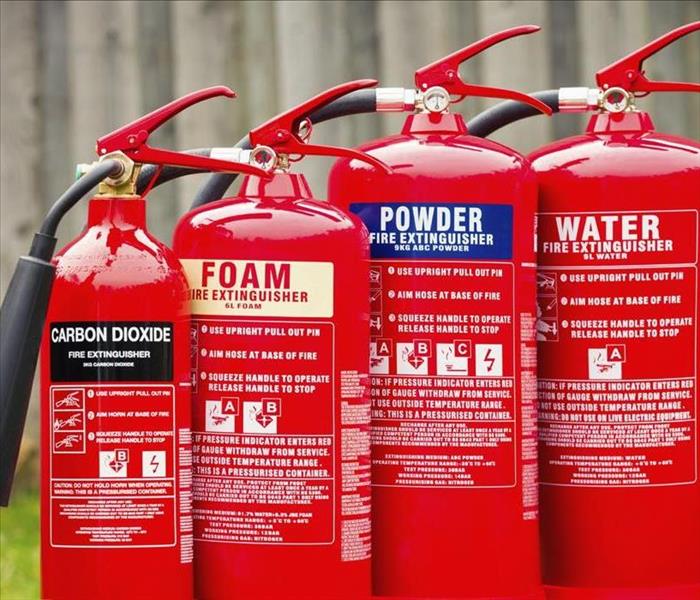Types of Fire Extinguishers
4/19/2018 (Permalink)
 It's important always to use the right extinguisher for the fire. Using the wrong extinguisher can put your life in danger and make the fire worse.
It's important always to use the right extinguisher for the fire. Using the wrong extinguisher can put your life in danger and make the fire worse.
There are three main types of extinguisher and they work in slightly different ways:
- Water extinguishers, which are the most common, are essentially tanks full of water with compressed (tightly squeezed) air as the propellant to make them come out. Water extinguishers work by removing heat from the fire.
- Dry chemical extinguishers are tanks of foam or dry powder with compressed nitrogen as the propellant. They work by smothering the fire: when you put a layer of powder or foam on the fire, you cut the fuel off from the oxygen around it, and the fire goes out.
- Carbon dioxide (CO2) extinguishers contain a mixture of liquid and gaseous carbon dioxide (a nonflammable gas). CO2 is normally a gas at room temperature and pressure. It has to be stored under high pressure to make it a liquid. When you release the pressure, the gas expands enormously and cools to make a huge white jet. CO2 attacks the fire triangle in two ways: it smothers the oxygen and, because it's so cold, it also removes heat.
That classifies extinguishers by what they contain. You'll also find fire extinguishers classified by the types of fires you can use them on. This gives us five different kinds:
- A: Green: For wood, cloth, and paper.
- B: Red: For combustible and flammable liquids such as oil, gasoline, and paint.
- C: Blue: For electrical equipment and tools.
- D: Orange: For flammable metals.
- K: Black: For animal or vegetable oils or cooking facts.
It's important always to use the right extinguisher for the fire. Using the wrong extinguisher can put your life in danger and make the fire worse.





 24/7 Emergency Service
24/7 Emergency Service